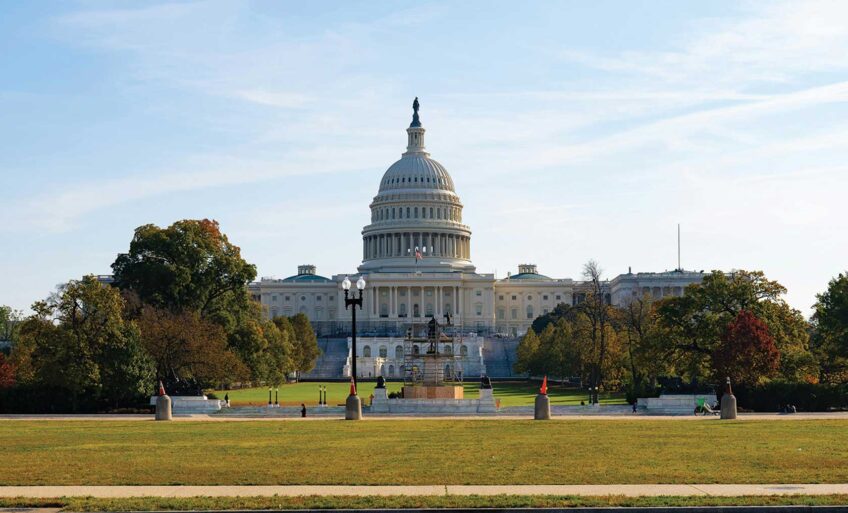President Obama does fulfill King’s dream
The parallel couldn’t have been more stunning. One was a mass march for justice and equality; the other was a mass memorial for tolerance and remembrance. The mass march was the March on Washington in 1963. Dr. Martin Luther King’s landmark “I Have a Dream” speech was both a measured and moving call for black and white unity to end segregation and racial injustice. But in a bigger sense, it was a plea for tolerance and civility.
Race was not the immediate issue in Tucson, violence and intolerance was, and President Barack Obama’s pitch perfect focus on those themes one week before the King national holiday captured the spirit and intent of King’s Washington speech. The tragedy was that it took the Tucson massacre as the occasion for Obama to address the concerns of violence and intolerance that tormented King and plagued the civil rights movement.
The March on Washington and the Tucson memorial had another striking parallel. It brought thousands of persons together across gender, class and color lines in a vocal protest against intolerance and violence. This, of course, was a hope and promise of Obama’s election. It showed that millions of whites could strap racial blinders around their eyes and punch the ticket for an African American for the world’s most powerful political post. King would almost certainly have glowed with approval at that.
But for a time there were a couple of troubling caveats that marred America’s great racial leap forward. Obama won in large part because he did what no other Democratic presidential candidate did, and that includes Bill Clinton. He turned his presidential campaign into a virtual holy crusade by African Americans voters to get him in the White House.
At the same time, McCain trounced Obama among North and South rural and blue collar whites. Obama won in only 44 counties in the Appalachian belt, a stretch of more than 400 counties from New York to Mississippi. Overall, he got less than a third of Southern white votes. The racial fault lines were still tightly drawn within a wide segment of the electorate.
The first two years of Obama’s administration it seemed that little had changed. The racially tinged and in some cases blatant vilification and ridicule of Obama by the pack of extreme Tea Party leaders, right-wing talk show gabbers, bloggers and websites were relentless. Polls showed that a significant percentage of whites still vehemently opposed Obama’s policies on health care and the economy, and bought into the slur that Obama was a closet Marxist and racial agitator. These were the exact same slurs that were repeatedly tossed at Dr. King.
That Obama had received more taunts and physical threats than any other president was another troubling indication that an untold number of Americans still can’t stomach the thought of an African American in the White House.
At the heart of King’s March on Washington speech and his decade of activism for racial justice and tolerance was that in fact America could both be pushed rudely, or gently evolve, into a colorblind society. By that he didn’t mean the phony, deliberate and self-serving distortion of his words by many conservatives to hammer affirmative action, special programs and initiatives and increased spending on jobs, education and health programs for African Americans and minorities.
King never lost sight of the fact that the legacy of segregation, bigotry and discrimination trapped thousands of poor blacks and that offered no easy resolution.
Nearly a half century after King’s “I Have a Dream” words, the black poor are still just as tightly trapped in the grip of poverty and discrimination that King warned about. On the eve of the King national holiday and Obama’s second year in office, the Boston-based research and economic justice advocacy group, United for a Fair Economy, released its eighth annual King Day report. It found that the gaping disparities in income, wealth, employment, quality and availability of housing, decent schools and health care between blacks, minorities and whites has grown even wider. Countless government reports and studies, and the National Urban League’s 2009 State of Black America report also found that discrimination and poverty are still major barriers for millions.
Obama has publicly bristled at the notion that the civil rights movement is outdated, or worse, that he somehow supplants the ongoing work of civil rights leaders. He has repeatedly praised past civil rights leaders for their heroic battle against racial injustice. This is a fitting tribute to the civil rights movement that challenged the nation to make King’s dream of justice and equality a reality. Obama faced that challenge and defied the racial odds in winning the White House. This was a major step forward. King would have cheered that. He would have undoubtedly cheered just as loudly Obama’s Tucson speech. As long as bigotry, violence and intolerance exist, and Tucson showed that, King and Obama understand that there’s still much to overcome.
Earl Ofari Hutchinson is an author and political analyst.






